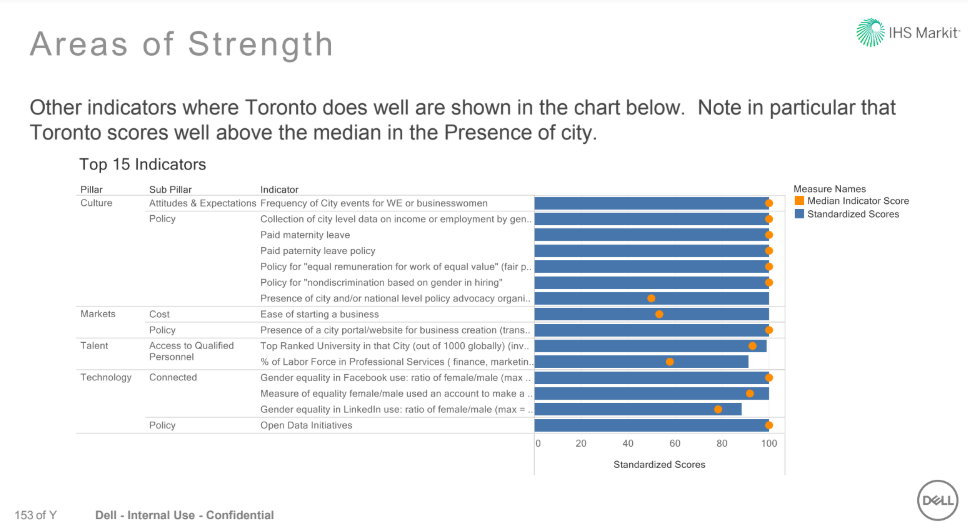During its Women Entrepreneurship Network Summit in Toronto, Dell released the results of a new Women’s Entrepreneurship (WE) Cities report examining how cities around the world could tackle barriers to facing women entrepreneurs.
“When barriers to women entrepreneurship are removed, there is a dramatic uplift in a city’s economic prospects.”
The report was based on the results of its 2017 report, which ranked the top 50 cities that are working to support women’s entrepreneurship. Toronto made the top 10 at ninth place, while Vancouver made 26th place.
Minister of Small Business and Tourism Bardish Chagger was at the Summit to present the findings.
“Our government knows that when women succeed, everyone succeeds,” said Chagger. “While Canada is a great place to do business, we know that women entrepreneurs still face unique challenges as they move through the phases of business development. With Canada’s first Women Entrepreneurship Strategy, our government’s goal is to double the number of women-owned businesses by 2025. I challenge all Canadians to consider how, within your organizations and your networks, you can promote women entrepreneurship, engage more women entrepreneurs and support more women leaders.”
This new report includes ‘Blueprints’ for 10 cities, providing a deep dive into barriers and opportunities for women, and informing city leaders and policymakers to guide decisions. Toronto was the only Canadian city included in the Blueprints.
“Women’s entrepreneurship rates rose globally by 13 percent in 2017, reflecting broader momentum of increased female representation across the public and private sectors in many regions around the world. However, access to capital and technology, as well as cultural and political barriers, continue to limit the success of women-owned businesses,” said Karen Quintos, executive vice president and chief customer officer at Dell. “With the release of the WE City Deep Dives and Blueprints, leaders and policymakers can confidently move from ‘analysis to action,’ accelerating positive change that allows women entrepreneurs to thrive – which benefits local communities, wider society and the global economy.”

Toronto scored well overall on policies that impact a supportive culture for women entrepreneurs. The report indicated a high frequency of events for women entrepreneurs, an ease for starting a business, and city and/or national level policy advocacy organization specifically for women’s equality issues.
However, Toronto did rank lower in technology and talent compared to other cities; entrepreneurs tend to gravitate towards New York City and San Francisco as they progress through their careers, and the city has a low number of globally-recognized successful women entrepreneurs.
“As Toronto is Canada’s major economic hub, the composition leadership of major business associations tends to skew towards older senior executive norms: white, male, and predominantly pedigreed in prestige roles (banking, law, politics),” the report reads. “This is highly likely to change over the next 10 years, with incremental signs of change in between.”
The report recommends doing more to publicize and encouraging accomplished women in Toronto’s traditional financial and commercial sector as role models in technology fields, and pushing policies that give women entrepreneurs equal footing in accessing capital. Policies that give women more access to opportunities in procurement would help them advance their businesses—a move that the Canadian government is already making as outlined in its recent budget.
“According to extensive data and analysis, when barriers to women entrepreneurship are removed, there is a dramatic uplift in a city’s economic prospects,” said Cris Turner, vice president of Government Affairs at Dell. “The WE City Deep Dives and Blueprints offer insights on what cities on the list can learn from one-another and encourage political action to attract and support women entrepreneurs at the local level.”
Photo via Unsplash.


